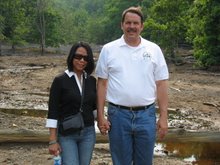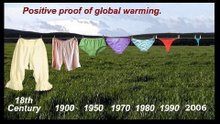What would happen to you and your family if a pandemic, natural disaster or a major terrorist attack were to occur? Imagine empty grocery store shelves, no gasoline, no running water, no electricity, and no natural gas service. You may have enough food and water to last for a few days, but what do you do after that?
You can live 3 minutes without air.
You can live 3 days without water.
You can live 3 weeks without food.
A good survival plan should begin with preparations to deal with an emergency within the first few minutes, and end with strategies for long-term survival.
In the event of an explosion, fire, or crash you may need to deal with broken glass and sharp metal objects and hot objects. Imagine how handy gloves would be. You should also be prepared to handle physical injuries you may sustain, as well as those of family members and others nearby. A knife is a necessity, as is a well-equipped first aid kit.
Survival preparations for the first few days after the emergency should include a supply of food and water, of course, but you’ll also need shelter and perhaps the ability to stay warm and dry. Help may be slow in coming in the event of a large-scale disaster. Many New Orleans residents learned this the hard way after Hurricane Katrina.
Survival becomes something else after the first few days. Your need for water and food is an ongoing one, and your stockpile may be running low. Perhaps you’ve banded together with neighbors, and pooled your resources. That’s a good thing. Each member of the group has his or her own unique talents, many of which can help to ensure the survival of your group. Skills such as hunting, trapping, and fishing will certainly come in handy, as will the ability to identify edible plants.
Whether you live in a city, or in a rural area, the importance of urban gardening and small-scale farming cannot be overemphasized. And, of course, you’ll need to know how to preserve and store food. Improperly stored food may rot, or be ruined by insects or rodents. It should be obvious that these skills need to be learned BEFORE an emergency. The people most likely to survive are those who’ve already incorporated elements of sustainable living into their everyday lives. Some have moved out of heavily populated areas, realizing that in the event of a disaster it will be difficult to get food when a million of their neighbors are also looking for it. They’re learning and practicing the skills that their great grandparents knew well. Some are making their own electricity with solar panels, windmills, and micro-hydro systems. Life in a rural area presents an abundance of opportunities for sustainable living, many of which are not available in the city.
Electricity may seem like a luxury, and some may believe that solar panels, windmills, and micro-hydro systems shouldn’t be included in a survival discussion. I disagree. Electricity can be an important aspect of survival in several ways. When used to power a refrigerator or freezer, electricity becomes a big part of a food preservation strategy. Additionally, refrigeration is often needed to keep medications from spoiling. Having electricity means that you’ll have good lighting, an important security consideration, and it helps to prevent accidental injuries around the home. Without electricity, you might have to boil water over a fire to make it safe for drinking. A renewable supply of electricity can keep a radio or TV operating, providing critical information as well as entertainment. When you think of all the electrically-operated appliances that you would otherwise have to do without, it’s obvious that electricity can make life comfortable in an otherwise unbearable situation.
Some will have you believe that you’ll need to spend tens of thousands of dollars for a practical solar electric system, but that’s simply not true. A system to meet your basic needs can be built for under $1000.00. You won’t have central air-conditioning with a small system, but you will have lighting, communications, and perhaps a limited amount of electricity for cooking and refrigeration. In the absence of grid power, you’ll be thankful for the small amount of electricity your system provides. You’ll learn techniques for getting by with less. A chest freezer, for example, can meet your refrigeration needs with much less energy consumption than a refrigerator.
You may think that these gloom-and-doom scenarios are unrealistic and choose to do nothing, but if you believe that that things could get ugly you should prepare as soon as you can. If you wait until things get bad, it will be too late. You’ll be forced to use the resources you have available, not the systems you planned to install someday. Surviving a disaster will be a challenge, so being in good physical condition is important. Don’t abuse alcohol, tobacco, or other drugs. You may have the additional task of caring for very young or very old family members. Make regular exercise a part of your plan. Don’t be overwhelmed, the important thing is to get started. Eat healthy and get plenty of rest.
“The thing about being a survivalist kook and stockpiling gold, guns, and food is that there’s no downside. Even if you’re wrong, you’ve still got gold, guns, and food.” W.C. Verson
Being a “survivalist” today means more than simply providing for your own comfort. Today, survival of the planet is an important consideration as well. In the absence of a healthy planet, even the most carefully laid out personal plans will be of no value.
About 50% of the electricity produced in the United States comes from coal-fired power plants. Mining, transporting, and burning coal has terrible environmental consequences. Additionally, oil reserves are running low (peak oil). It should be obvious that we’re on the brink of a radical lifestyle change. The good news is that we can do a lot, with very little sacrifice. Our lifestyles include a lot of waste, and therefore we have numerous opportunities to make changes that will benefit not only ourselves, but all of mankind and the planet.
By incorporating elements of self-sufficient living into your lifestyle, you’ll benefit from a better quality of food, more exercise, and better air quality. Anyone who’s ever compared a store-bought tomato to one grown in a backyard garden knows what I mean. Tomatoes that have to be shipped a long distance are picked green, and “gassed” to turn them red by the time they show up in the supermarket. They’re rock-hard, and have little flavor. I can only guess that the nutritional and cancer-fighting properties are not what they should be either. And it’s wise to remember that the recent salmonella outbreak linked to tomatoes was a result of industrial agriculture. Shipping fewer vegetables not only means better food, it also means fewer trucks on the road, which reduces fossil fuel use and improves air quality.
In the words of Charles Darwin, "It is not the strongest of the species that survives, nor the most intelligent, but the one most responsive to change.” Problems related to global warming and the decline of oil are among the most significant changes this generation will face. Many believe that global warming is responsible for climate change, including extreme weather, such as storms of greater intensity. Some believe that global warming is a natural phenomenon, while others believe that it is caused by our actions. Perhaps it’s some of both. Regardless of the cause, our response needs to be a thoughtful plan, not simply a knee-jerk reaction to the latest crisis.
Someday we’ll have a leader who will actually work with us to solve problems, instead of telling us we’re “addicted to oil”, but for now we’re just going to have to rely on our own efforts. Mass acceptance of renewable energy systems by the general public will show our elected officials, and the rest of the world, that we want to do the right thing. We can do it. We should do it. Future generations will appreciate our efforts.
John
Thursday, July 23, 2009
Survival in the 21st Century
Labels:
Alternative Fuel,
Coal,
Conservation,
Food,
Health,
Off Grid,
Photovoltaic,
PV,
Renewable Energy,
Solar Electric,
Solar Panels
Subscribe to:
Post Comments (Atom)








1 comment:
This is wonderful information for all to know about disaster preparedness. Great post. Keep up the good work!
Post a Comment